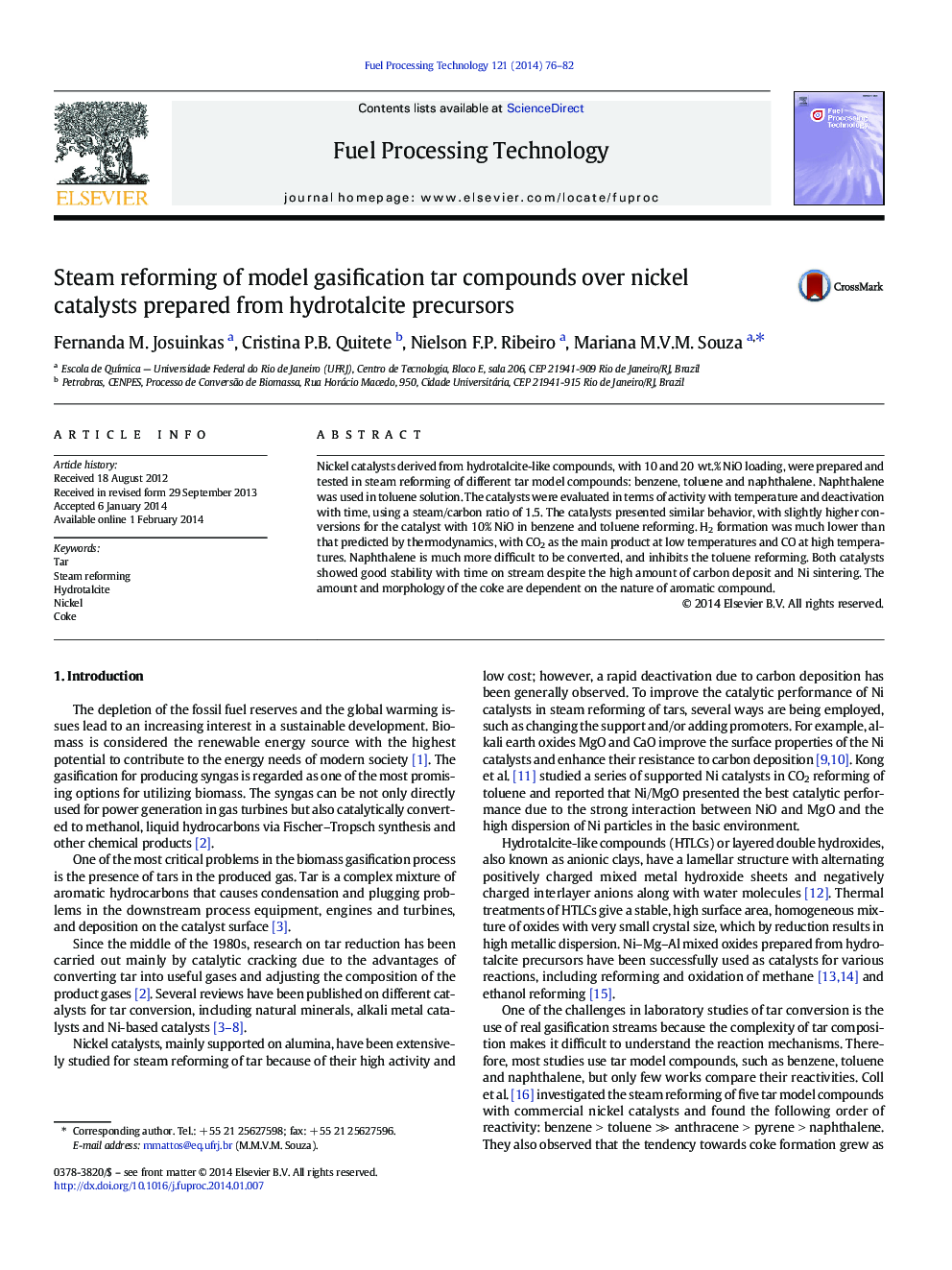| Article ID | Journal | Published Year | Pages | File Type |
|---|---|---|---|---|
| 209845 | Fuel Processing Technology | 2014 | 7 Pages |
•Steam reforming of benzene, toluene and naphthalene was evaluated.•The catalysts presented high activity and stability with time on stream.•Naphthalene conversion is much more difficult, requiring high temperatures.•The amount and morphology of coke deposit depend on the nature of aromatic.
Nickel catalysts derived from hydrotalcite-like compounds, with 10 and 20 wt.% NiO loading, were prepared and tested in steam reforming of different tar model compounds: benzene, toluene and naphthalene. Naphthalene was used in toluene solution. The catalysts were evaluated in terms of activity with temperature and deactivation with time, using a steam/carbon ratio of 1.5. The catalysts presented similar behavior, with slightly higher conversions for the catalyst with 10% NiO in benzene and toluene reforming. H2 formation was much lower than that predicted by thermodynamics, with CO2 as the main product at low temperatures and CO at high temperatures. Naphthalene is much more difficult to be converted, and inhibits the toluene reforming. Both catalysts showed good stability with time on stream despite the high amount of carbon deposit and Ni sintering. The amount and morphology of the coke are dependent on the nature of aromatic compound.
